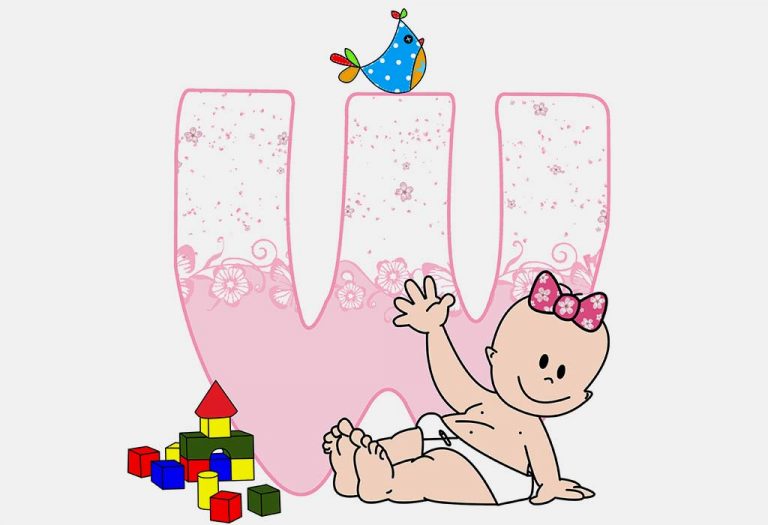Unsupportive Husband During Pregnancy – Signs and Ways to Deal With Him
Understanding the emotional signs, challenges, and impact of having an unsupportive husband during pregnancy.
Pregnancy is a time filled with joy and anticipation, along with a heightened connection between partners. However, for some women, this period can be painful because of unsupportive husbands. When husbands seem distant or indifferent, navigating pregnancy alone can be incredibly challenging and saddening, leaving you feeling isolated during a time when you need the most attention and care. Emotional and practical support during pregnancy is extremely important for the baby’s growth and development. Hence, recognising the signs of an unsupportive husband during pregnancy and dealing with them on time can help a great deal, not only for your mental well-being but also for the health of your baby. So, what are the signs he doesn’t care about your pregnancy? In this article, we discuss the subtle and not-so-subtle signs that indicate your partner’s lack of attention during pregnancy and how to deal with it.
Why Your Husband May Not Be Excited?
While pregnancy is often portrayed as a time of universal joy, it’s common for some partners to show less excitement, which can stem from a variety of understandable pressures.
1. Anxiety About New Responsibilities
The impending shift to fatherhood brings immense pressure to provide, protect, and care for a family. This anxiety about major new responsibilities can sometimes overshadow immediate excitement as he worries about the future.
2. Feeling Like an Outsider in the Process
The physical and emotional experience of pregnancy is uniquely maternal. Your husband may feel disconnected or secondary, unsure of his role or how to participate, which can mute his outward enthusiasm.
3. Financial and Logistical Stress
He may be preoccupied with the practical burdens of expanding the family, including medical costs, home space, and long-term finances. This stress can consume mental energy, making excited feelings harder to access.
4. Fear for Your Health and the Baby’s
Witnessing a partner’s discomfort and the very real risks of pregnancy can trigger a protective fear. His concern for your well-being and a healthy delivery may manifest as quiet worry rather than overt excitement.
5. Processing the Change in Your Relationship
He may be consciously or subconsciously grappling with the permanent change in your dynamic—from a couple to parents. This significant life transition requires adjustment and can temper immediate excitement as he processes the loss of your previous life together.
13 Signs of an Unsupportive Husband During Pregnancy
Being cognizant of the signs of an unsupportive partner during pregnancy lays out the dynamics of a relationship during this critical time. Here are some common indicators that your husband may not be providing the support you need.
1. Emotional Detachment
If your husband seems emotionally distant or indifferent towards your pregnancy, it is a major red flag. Emotional detachment might present as a lack of interest in your pregnancy or an inability to connect with you emotionally. This can develop feelings of loneliness and lack of support during a time when you need a close connection more than ever.
2. Lack of Involvement in Pregnancy Activities
An unsupportive husband may show little interest in participating in pregnancy-related activities, such as attending doctor’s appointments, shopping for baby items, or discussing birth plans. This lack of involvement can make you feel like you’re navigating pregnancy alone.
3. Disregarding Your Physical and Emotional Needs
Pregnancy brings with it a host of physical and emotional challenges. While the first and second trimesters demand a majority of emotional support, the third trimester becomes extremely challenging without physical support. If your husband is dismissive of your pregnancy discomfort, fatigue, or emotional fluctuations, it could be a sign that he is not fully engaged in supporting you through this period.
4. Avoidance of Pregnancy Discussions
A husband who avoids conversations about the pregnancy, the baby or the future might not be okay with the current situation. This escapism can be hurtful, making you feel like your excitement and concerns are unimportant to him.
5. Insensitivity Towards Pregnancy-Related Changes
Pregnancy changes your body and lifestyle in significant ways, from weight gain to the appearance of a baby bump. If your husband makes insensitive comments about your appearance, weight gain, or the adjustments you’re making during this time, it can be a clear indication of a lack of empathy and support.
6. Prioritising His Needs Over Yours
It’s natural to expect some level of prioritisation of your needs and health when you are carrying a baby. If your husband prioritises his needs, hobbies, or work over your well-being, it could indicate that he is not willing to offer the support you need.
7. Lack of Patience and Understanding
Pregnancy can be a rollercoaster of emotions, and it’s normal to have varied moments of irritability or tears. An unsupportive spouse during pregnancy might lack patience with these emotional shifts and express frustration or annoyance towards you rather than offering you comfort.
8. Refusing to Make Lifestyle Adjustments
Pregnancy brings significant changes in lifestyle, from diet and sleep patterns to social activities and bodily immunity. If your husband is unwilling to recognise the changes and make any adjustments to support them, it could indicate a lack of commitment on their part.
9. Downplaying Your Pregnancy Symptoms
Regularly downplaying or dismissing your pregnancy symptoms, such as morning sickness, lethargy, or discomfort, are also subtle indicators of a lack of empathy and support from a husband. This lack of acknowledgement can be incredibly isolating.
10. Focusing on Negative Aspects
While it’s normal to have concerns about the future, an unsupportive husband might focus excessively on the negative aspects of the pregnancy or impending parenthood. They would just want the phase to complete quickly so they can move on to the next chapter. This can add unnecessary stress and anxiety and build resentment for the future.
11. Lack of Emotional Reassurance
Fears and insecurities towards the baby’s future and their parenting are quite common among parents, but when these fears are constant on a husband’s face, and they fail to provide reassurance, then it is a clear indication of invalidation on their part.
12. Criticism Instead of Encouragement
During pregnancy, you need encouragement and positivity from your partner. Consistent criticism towards your pregnancy also validates emotionally unavailable husbands..
13. Withdrawing Affection
Showing affection is a way of expressing your love towards the person. If your husband withdraws affection or becomes distant, it can be a painful sign that he is not providing the support you need.
How This Can Impact Your Pregnancy?
Your partner’s subdued excitement can inadvertently add emotional complexity to your pregnancy, potentially affecting your well-being and the overall experience for you both.
1. Increased Feelings of Isolation and Resentment
If you perceive his lack of excitement as disinterest, you may feel lonely in your journey, leading to resentment. This emotional distance can strain your connection during a time when you desire support and shared joy.
2. Heightened Stress and Anxiety
Navigating his emotions on top of your own physical and hormonal changes can elevate your stress levels. This added anxiety is not ideal for your mental health and can contribute to a less peaceful pregnancy environment.
3. Communication Breakdowns
The situation can create a cycle of misunderstanding—you might withdraw because you feel hurt, while he may withdraw further because he senses your disappointment. This breakdown makes it harder to address underlying issues as a team.
How to Deal With an Unsupportive Husband During Pregnancy?
Dealing with an unsupportive husband while pregnant can be emotionally taxing, but it’s important to address these challenges head-on to ensure a healthier pregnancy for both you and your baby. Below are some practical ways to deal with an unsupportive husband while pregnant and navigate this phase with greater understanding and resilience.
1. Open Up a Dialogue
Communication is key when dealing with an unsupportive husband. Try to have an open and honest conversation about how his behaviour is affecting you. Express your feelings calmly, without blaming or criticising, and explain what you need from him during this time.
2. Seek Professional Help Together
If communication seems to be failing, or if your husband is struggling with his own emotions about the pregnancy, you can seek professional help. There are couples counselling and therapies that provide a neutral space to explore the underlying issues and work towards them.
3. Involve Him in the Pregnancy
Encouraging your husband to participate in pregnancy-related activities can help him feel more connected to the process. Whether it’s attending prenatal appointments, joining you in shopping for baby essentials, or even reading up on what to expect, involvement can sometimes transform indifference into excitement.
4. Educate Him About Pregnancy
Some men might be unsupportive due to a lack of understanding about what pregnancy entails. Educate your husband on the physical and emotional changes you’re experiencing. Share articles and books or even suggest attending a childbirth class together. Knowledge can lead to empathy, making him more aware of your needs.
5. Lean on Your Support Network
If your husband continues to be unsupportive despite your efforts, it’s important to lean on your other support networks. Friends, family, or support groups can provide the emotional backing you need. Surrounding yourself with people who understand and support you can help alleviate the feelings of isolation.
6. Set Clear Boundaries
Sometimes, setting boundaries is necessary to protect your emotional well-being. If your husband’s behaviour becomes particularly hurtful or stressful, make it clear what is and isn’t acceptable. Let him know that you need a positive environment during this time and that certain behaviours are not conducive to that.
7. Focus on Self-Care
Dealing with an unsupportive husband can take a toll on your mental and physical health. Make self-care a priority. Engage in activities that bring you joy, relaxation, and comfort. Whether it’s prenatal yoga, a hobby you love, or simply taking time for yourself, prioritising your well-being is crucial.
8. Manage Expectations
It’s important to manage your expectations when dealing with an unsupportive husband. Accepting that he may not change overnight can help reduce disappointment. Focus on the small positive steps he takes rather than expecting a complete transformation immediately.
9. Encourage Small Gestures of Support
Encouraging your husband to make small gestures of support can gradually build a more positive dynamic. Whether it’s helping with household chores, offering to cook, or just asking about your day, these small actions can lead to bigger changes over time.
10. Plan for the Future
Discussing the future and what kind of parents you both want to be can sometimes shift your husband’s perspective. Planning for the baby’s arrival together can help him feel more involved and responsible, potentially leading to a more supportive attitude.
FAQs
1. What should I do if my husband doesn’t seem interested in my pregnancy?
If your husband appears uninterested, sit and discuss your feelings with him openly. Sometimes, sharing your concerns and asking for specific support can encourage him to become more involved.
2. Can an unsupportive husband affect my mental health during pregnancy?
Yes, an unsupportive husband can contribute to stress, anxiety, and feelings of isolation, which may affect your mental health during pregnancy. You can seek support from other loved ones, like your family and friends or a professional if needed.
3. How can I encourage my husband to be more supportive?
You can encourage your husband to be more supportive by involving him in pregnancy-related activities, like accompanying you to prenatal yoga classes or ultrasound scans, educating him about the changes you’re going through, and communicating your needs and fears clearly.
Dealing with an unsupportive husband during pregnancy can seem challenging, but it is possible. By pursuing open communication, seeking support, and focusing on self-care, you can create a more positive environment for yourself and your baby. Yes, it may take time and patience, but the change will be significant. We also suggest managing your expectations and celebrating any progress, however small. Ultimately, prioritising your and your baby’s well-being is the most important step you can take during this time.
Also Read:
Husband’s Responsibilities During Pregnancy
How to Deal with Depression During Pregnancy
Handle Emotional and Psychological Changes in Pregnancy
Was This Article Helpful?
Parenting is a huge responsibility, for you as a caregiver, but also for us as a parenting content platform. We understand that and take our responsibility of creating credible content seriously. FirstCry Parenting articles are written and published only after extensive research using factually sound references to deliver quality content that is accurate, validated by experts, and completely reliable. To understand how we go about creating content that is credible, read our editorial policy here.

























